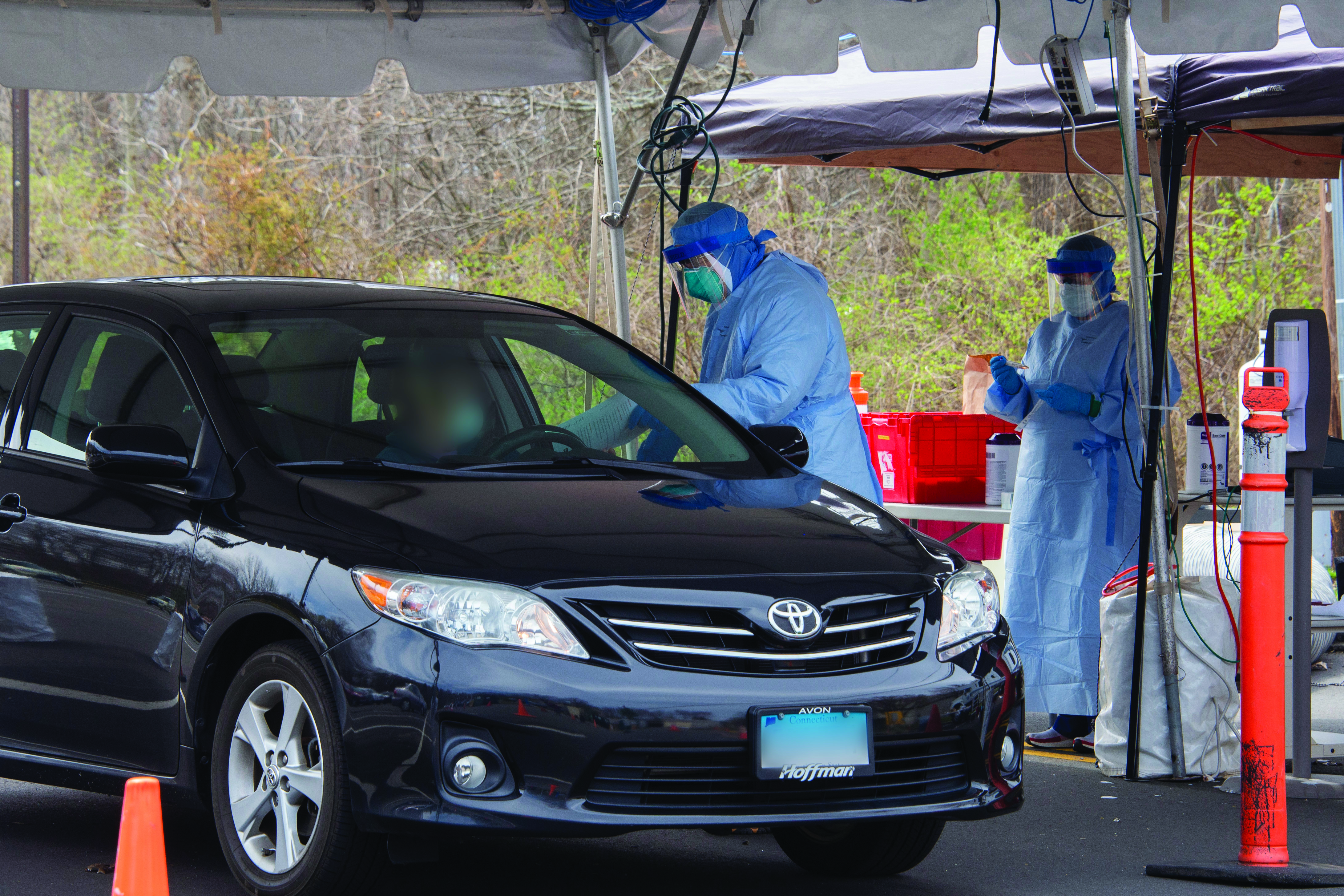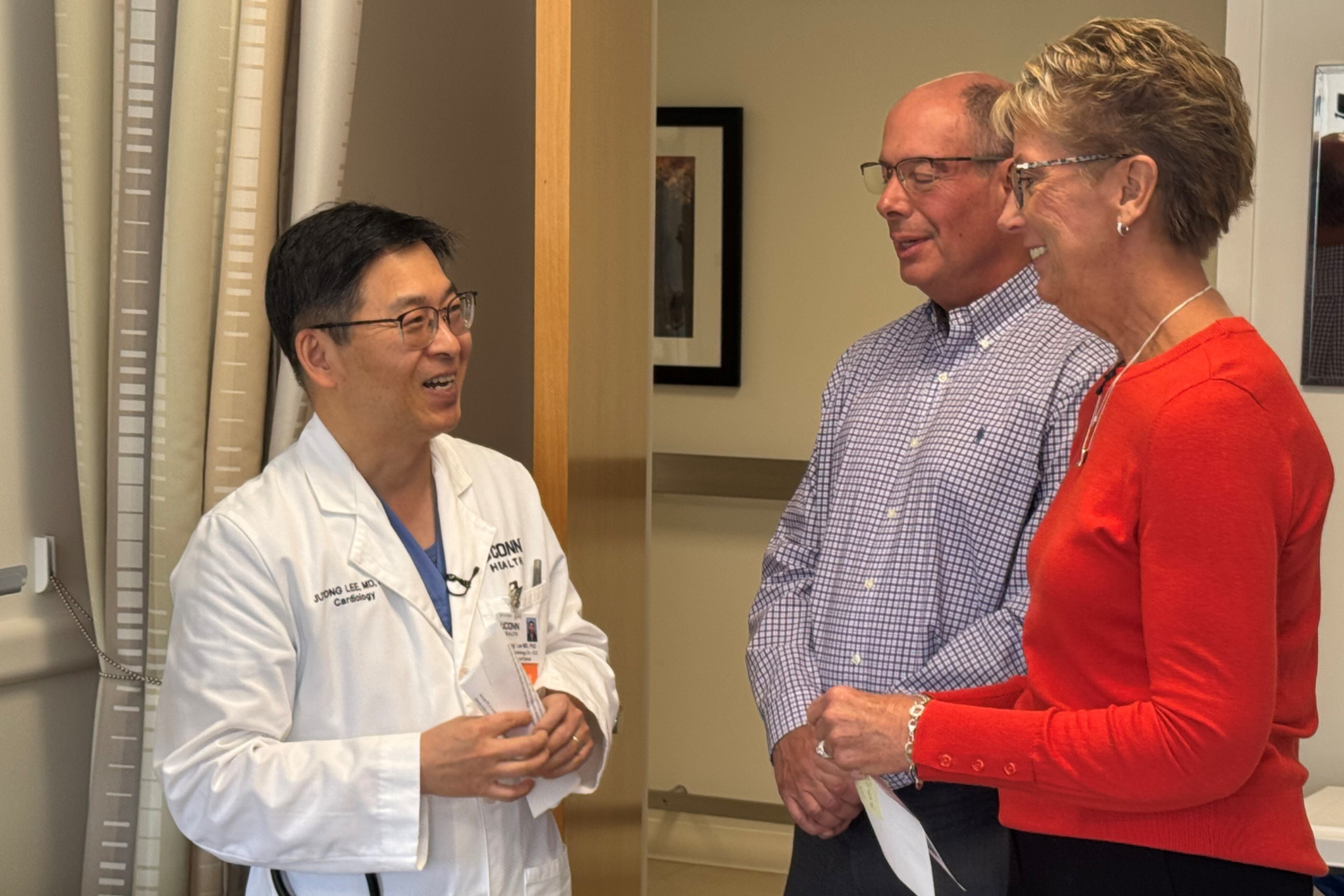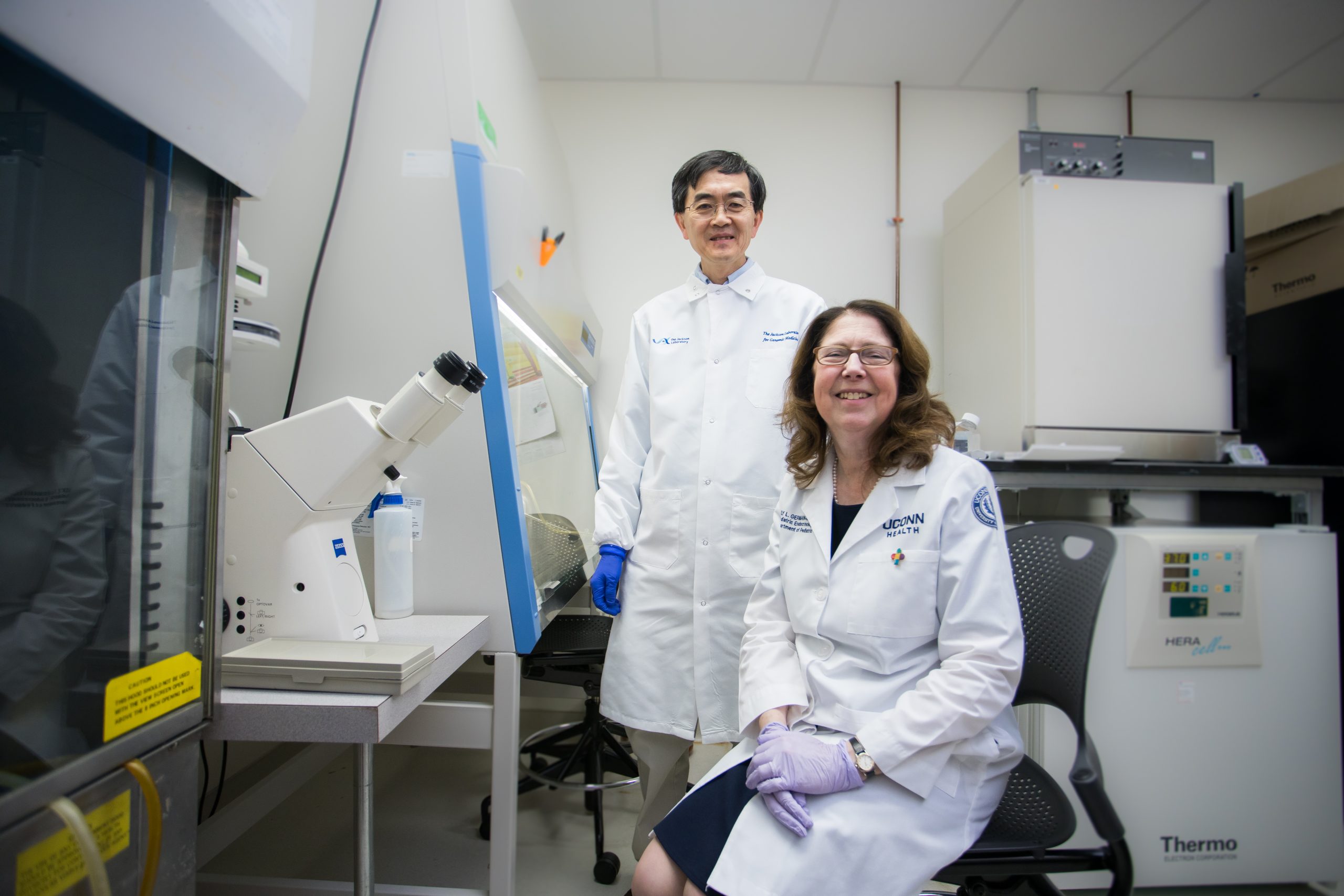The numbers speak for themselves: one-third of the people diagnosed with COVID-19 in the U.S. are Hispanic, according to the Centers for Disease Control and Prevention, and nearly half of all pregnant women who have contracted the virus are Hispanic.
Yet Hispanics only make up 18% of the country’s population.
School of Nursing researchers Xiaomei Cong and Kelley Newlin Lew say that earlier testing and diagnosis of COVID-19 could help Hispanic families across Connecticut, but they need to identify what is preventing these families from getting tested in the first place. They’re partnering with the Hispanic Alliance of Southeastern Connecticut for the research study, with support from the Office of the Vice President for Research’s COVID-19 Research Seed Funding (COVID-RSF2) Program.
“This study will give us quantitative and qualitative data we’ll use to develop strategies to potentially help increase COVID-19 screening and vaccination,” Newlin Lew says. “But the strategies will be informed by community members who need these services, and by local leaders and health professionals who can also provide insight.”
To determine which factors influence Hispanic families’ decisions to seek or not seek COVID-19 testing, the researchers will conduct surveys of 50 underserved Connecticut families with pregnant women and young children up to age 3. The survey questions will help identify what participants perceive to be the benefits and barriers to getting tested and vaccinated; their awareness and knowledge of COVID-19; and their decision-making process when it comes to testing and vaccination.
“Our preliminary collaborative work with the Hispanic Alliance of Southeastern Connecticut suggests that medical distrust is a central factor,” the researchers say. “Few resources for affordable testing, suboptimal primary care access for some, and other constraints may also serve as barriers for Hispanic families, especially among mothers and young children.”
Once the survey data is in hand, Cong and Newlin Lew will develop theories of how to increase testing and future vaccination. This part of the study will include a focus group with five Hispanic women and their family members, as well as a focus group with five Hispanic community leaders, health care professionals, and social workers. The groups will help refine the researchers’ strategies.
“They identify the need and we provide our research expertise, but they’re providing expertise on local knowledge, local needs, cultural sensitivity, barriers, and facilitators,” Newlin Lew says.
The Hispanic Alliance of Southeastern Connecticut is a long-time partner of the School of Nursing and has created the Ayuda Program to provide financial relief, psychological services, pre- and postpartum health education, and other critical support to more than 1,100 families during the pandemic.
The study will also offer experience to student researchers. Catherine Cantelmo ’23 (NURS) has received a Social Sciences, Humanities, and Arts Research Experience (SHARE) award from the Office of Undergraduate Research for her role in the study.
“I wanted to be involved in this COVID-19 study because it’s a rare opportunity to work on research that is addressing a current crisis in an underserved community,” Cantelmo says. “I think the ability to address a disparity involving people living near me is one that not everyone has, and I am very thankful for the opportunity that I have been given.”
The combination of researcher expertise, community knowledge, and student involvement in this study has the potential to make an impact on communities across Connecticut.
“Under the leadership of Dean Chyun, the School of Nursing has placed a renewed emphasis on health inequities in our research,” Newlin Lew says. “This study is really about engaging the community and solving health problems that afflict them. It’s a process of empowerment.”
Follow the UConn School of Nursing on Facebook, Instagram, Twitter, or LinkedIn.



